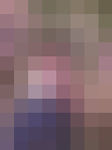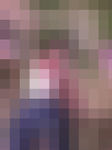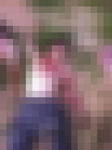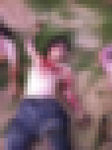Toward an argument for visibility: Difference between revisions
Sal Miranda (talk | contribs) No edit summary |
Sal Miranda (talk | contribs) No edit summary |
||
| (5 intermediate revisions by the same user not shown) | |||
| Line 1: | Line 1: | ||
Toward an argument for visibility is a program that allows the viewer to de-pixelate an image through the simple click of a mouse button. Initially, the viewer is confronted by an image pixelated beyond any figurative recognition on a screen. By clicking a mouse placed on an adjacent plinth, the image becomes incrementally de-pixelated and restored to its original high-resolution format. As the image becomes clearer, the viewer is confronted by a disturbing image of war. | Toward an argument for visibility is a program that allows the viewer to de-pixelate an image through the simple click of a mouse button. Initially, the viewer is confronted by an image pixelated beyond any figurative recognition on a screen. By clicking a mouse placed on an adjacent plinth, the image becomes incrementally de-pixelated and restored to its original high-resolution format. As the image becomes clearer, the viewer is confronted by a disturbing image of war. | ||
The work was created using Processing (www.processing.org). The original image is taken | The work was created using Processing (www.processing.org). The original image is taken from online. | ||
The work draws from artist Thomas Hirschhorn’s Pixel-Collage that inverts the pixilation seen in graphic images within journalistic or documentary media. He identifies pixilation as propagandist motivation to veil war and terror, and takes the visibility of graphic content as his moral position against war. Toward an argument for visibility further explores the deceitfulness of the pixelated image. The image plays on the viewer’s desire to reveal what is hidden, to satisfy their voyeurism, but offers no satisfaction or protection against sensitivity. | The work draws from artist Thomas Hirschhorn’s Pixel-Collage that inverts the pixilation seen in graphic images within journalistic or documentary media. He identifies pixilation as propagandist motivation to veil war and terror, and takes the visibility of graphic content as his moral position against war. Toward an argument for visibility further explores the deceitfulness of the pixelated image. The image plays on the viewer’s desire to reveal what is hidden, to satisfy their voyeurism, but offers no satisfaction or protection against sensitivity. | ||
| Line 8: | Line 8: | ||
This incremental bringing-about of something awful characterizes much of how I understand Western lifestyles. Unequal relationships in global trade are amplified by our demand for cheap consumer goods; environmental destruction is fueled by food consumption patterns, real estate purchases, etc. The list goes on. However, our participation in these destructive processes are masked as the individual is a negligible ‘drop in the bucket’ Toward an argument for visability is a microcosm of this process, and one in which the audience can readily understand their personal implication. | This incremental bringing-about of something awful characterizes much of how I understand Western lifestyles. Unequal relationships in global trade are amplified by our demand for cheap consumer goods; environmental destruction is fueled by food consumption patterns, real estate purchases, etc. The list goes on. However, our participation in these destructive processes are masked as the individual is a negligible ‘drop in the bucket’ Toward an argument for visability is a microcosm of this process, and one in which the audience can readily understand their personal implication. | ||
===Sketch=== | |||
[[Sketch for Toward...]] | [[Sketch for Toward...]] | ||
===Screenshots=== | ===Screenshots=== | ||
<gallery mode=packed style="text-align:left" heights= | <gallery mode=packed style="text-align:left" heights=100px> | ||
Toward0.jpg | Toward0.jpg | ||
Toward3.jpg | Toward3.jpg | ||
Latest revision as of 20:17, 8 December 2017
Toward an argument for visibility is a program that allows the viewer to de-pixelate an image through the simple click of a mouse button. Initially, the viewer is confronted by an image pixelated beyond any figurative recognition on a screen. By clicking a mouse placed on an adjacent plinth, the image becomes incrementally de-pixelated and restored to its original high-resolution format. As the image becomes clearer, the viewer is confronted by a disturbing image of war. The work was created using Processing (www.processing.org). The original image is taken from online.
The work draws from artist Thomas Hirschhorn’s Pixel-Collage that inverts the pixilation seen in graphic images within journalistic or documentary media. He identifies pixilation as propagandist motivation to veil war and terror, and takes the visibility of graphic content as his moral position against war. Toward an argument for visibility further explores the deceitfulness of the pixelated image. The image plays on the viewer’s desire to reveal what is hidden, to satisfy their voyeurism, but offers no satisfaction or protection against sensitivity.
As an art installation, the work requires audience participation. The placement of the mouse and the invitation to click in order to de-pixelate the image is performative action readily accepted by the audience. In this case however, the audience participates in the creation of an image they may not want or expect in an exhibition setting. It is precisely at the point of no return, when the image becomes clear enough, that the clicker of the mouse realizes they are now implicated in the unveiling of a horrible image. The work asks the question, “what realities are acceptable to be revealed?”.
This incremental bringing-about of something awful characterizes much of how I understand Western lifestyles. Unequal relationships in global trade are amplified by our demand for cheap consumer goods; environmental destruction is fueled by food consumption patterns, real estate purchases, etc. The list goes on. However, our participation in these destructive processes are masked as the individual is a negligible ‘drop in the bucket’ Toward an argument for visability is a microcosm of this process, and one in which the audience can readily understand their personal implication.




